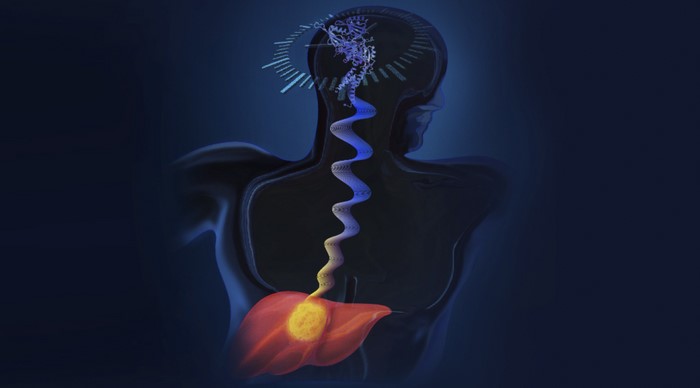Hepatocellular carcinoma (HCC) is the third leading cause of cancer-related deaths globally. While chemotherapy, surgery, and liver transplants have helped some patients, targeted treatments for HCC are still needed. Recent studies have offered clues about one potential target: the circadian clock proteins inside cells. However, most research only hinted at an indirect link between circadian clock function and HCC. Now a new study by researchers at the Keck School of Medicine of USC not only demonstrates a direct link between circadian clock proteins to liver cancer, but it also shows precisely how the cancer cells hijack circadian clock machinery to divide and spread.
The new findings are published in Proceedings of the National Academy of Sciences in a paper titled, “Circadian regulator BMAL1::CLOCK promotes cell proliferation in hepatocellular carcinoma by controlling apoptosis and cell cycle.”
“HCC remains a global health challenge whose incidence is growing worldwide,” wrote the researchers. “Previous evidence strongly supported the notion that the circadian clock controls physiological homeostasis of the liver and plays a key role in hepatocarcinogenesis. Despite the progress, cellular and molecular mechanisms underpinning this HCC-clock crosstalk remain unknown. Addressing this knowledge gap, we show here that although the human HCC cells Hep3B, HepG2, and Huh7 displayed variations in circadian rhythm profiles, all cells relied on the master circadian clock transcription factors, BMAL1 and CLOCK, for sustained cell growth. Down-regulating Bmal1 or Clock in the HCC cells induced apoptosis and arrested cell cycle at the G2/M phase.”
“Earlier studies didn’t give us a real handle on how we could use a specific treatment to target processes within liver cancer cells. In this paper, we’re making the first steps toward that,” explained the study’s senior author, Steve A. Kay, PhD, University and Provost professor of neurology, biomedical engineering and quantitative computational biology at the Keck School of Medicine of USC and director of the USC Michelson Center for Convergent Bioscience.
“We are very excited to find a new, innovative treatment strategy that may ultimately improve outcomes for patients with liver cancer,” said Heinz-Josef Lenz, MD, a professor of medicine and preventive medicine, associate director for clinical research, and co-leader of the Gastrointestinal Cancers Program at USC Norris. “By targeting the circadian clock, we are not only targeting tumor cells but also the area around the tumor, which can help increase the efficacy of other targeted treatments.”
Kay, Lenz, and their colleagues conducted a series of experiments, using a combination of cell culture, genomic analysis, and animal models.
The researchers showed that two key clock proteins, known as CLOCK and BMAL1, are critical for the replication of liver cancer cells in cell culture.
Next, the team drew on their tool chest of genomic samples, built through years of research on circadian clock proteins in the body, to further understand the role of CLOCK and BMAL1. They demonstrated that eliminating the clock proteins reduced levels of the enzyme Wee1 and increased levels of the enzyme inhibitor P21.
“That’s exactly what you want because when it comes to cancer cell proliferation, P21 is a brake and Wee1 is a gas pedal,” said Kay, who also co-directs the USC Norris Center for Cancer Drug Development.
Finally, the researchers tested their findings in vivo. Mice injected with unmodified human liver cancer cells grew large tumors, but those injected with cells modified to suppress CLOCK and BMAL1 showed little to no tumor growth.
The researchers hope to explore the relationship between circadian clock proteins, Wee1, and the P53 gene. The gene helps prevent the growth of tumors in the body, and mutations in P53 have long been linked with a heightened risk for various cancers.
“We really need to understand that relationship to better identify which patients might benefit most from a targeted therapy against CLOCK and BMAL1,” Kay said.
The researchers also hope to begin testing experimental drugs that can target CLOCK and BMAL1 in patients with liver cancer.


